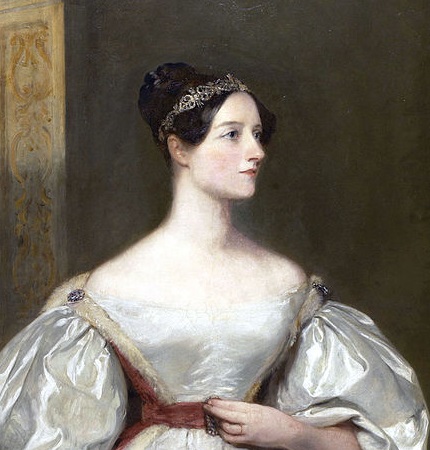Ada Lovelace

Ada Lovelace (London, December 10th 1815 – London, November 27th 1852) was a British mathematician and writer mainly known for her work about mechanic calculator machine of general use of Charles Babbage, the analytic machine. Among her notes about the machine is what is now known as the first algorithm to be processed by a machine. As a consequence, she is often described as the first female computer programmer. She deduced and anticipated the capacity of computers to go beyond the simple number calculations. Her father was the renown poet George Byron.
She described herself as a scientific poetess and analyst (and metaphysic). During her early adulthood, her mathematic talent led her to a long relationship and friendship with her fellow English mathematician Charles Babbage, and in particular with Babbage work about the analytic machine.
Between 1842 to 1843 she translated an article from an Italian military engineer, Luigi Menabrea, about the machine, which she completed with an extensive set of her own notes, simply called “Notes”. These notes contain what is considered to be the first computer program, meaning, a codified algorithm for a machine to process it. Lovelace’s notes are important for the history of computation origins. She also developed a vision about capability of computers to go beyond a simple numerical calculus while others, Babbage among one of them, focused only on these possibilities.
Apartado:
Otras mujeres ilustres